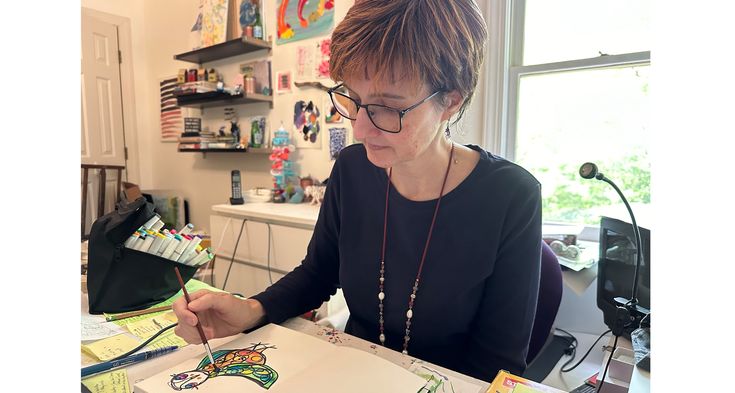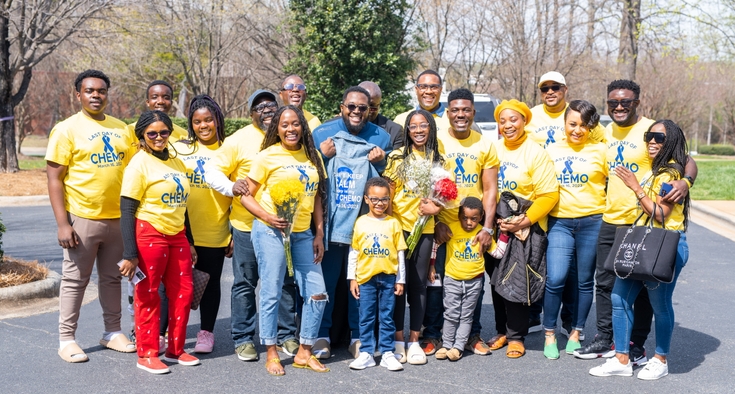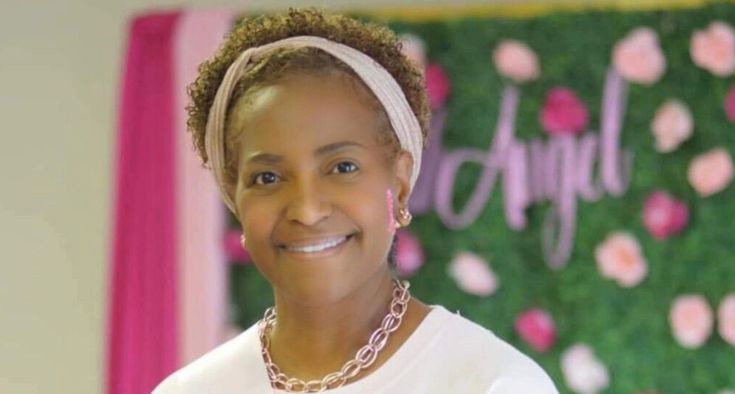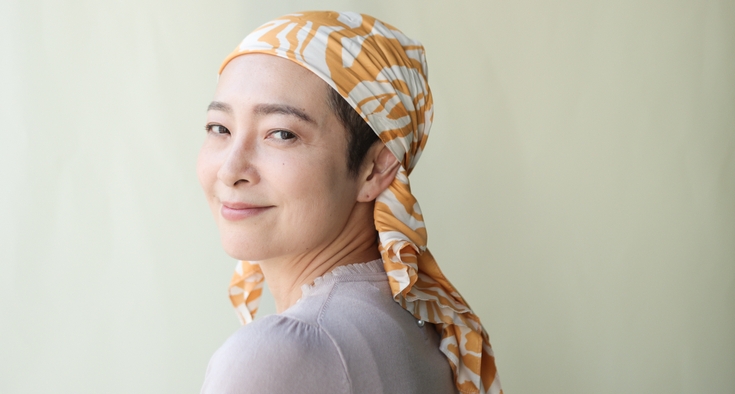Every day for four weeks, Kerrie Lorenzo drove herself to and from radiation treatments for Stage 3 colon cancer. But soon after starting chemotherapy, she no longer felt safe behind the wheel.
"I was not clear enough, focused enough to drive anymore," the 55-year-old Charlotte mother recalled. "I felt like I had cotton fluff in my head blocking everything — like I had this thought or memory on the tip of my tongue and I couldn't access it."
What is 'chemo brain'?
That brain fog, also known as chemo brain, is one of the unwelcome side effects of cancer treatment that Dr. Jeff Hardin works to address as lead physician of integrative medicine at the Novant Health Cancer Institute - Elizabeth in Charlotte.

Integrated oncologists work closely with other members of a patient's cancer care team to provide a coordinated and comprehensive approach to care. Hardin aims to head off side effects when possible and to provide complementary and holistic treatments for patients like Lorenzo who are already struggling with them.
"I love it when I get a patient who is just about to start treatment, and we can introduce them to these pillars of integrative medicine: nutrition, exercise, good sleep, stress reduction and social connection," he said. "Really, that's the best prevention."
Therapeutic support for your health and healing.
Chemo brain refers to changes in the way a cancer patient's brain works that affect memory, attention and focus. These changes — which doctors call cancer-related cognitive impairment — may be temporary, or lasting.
But chemo isn't the only cancer treatment that may bring on mental changes, Hardin noted. Radiation, immunotherapy, hormone treatment and targeted therapies also increase cognitive risk. Other contributors include aging, coexisting illnesses such as diabetes or high-blood pressure, sleep disruptions and the trauma of confronting a life-threatening illness.
"A common denominator is the mental and physical overwhelm patients experience when faced with a diagnosis of cancer and its treatment," Hardin said. "Everything patients are going through, the worry and the mind-churning — it's basically too much."
How to cope
The American Cancer Society shares five tips for coping with chemo brain:
Let your smartphone help: Use it to track appointments and to-do lists. Set up repeating alerts to take your meds.
Be routine: Follow a consistent schedule and put often-used items like keys or the remote in the same place every time you use them.
Track troubles: Using a diary to record when you experience problems and what's going on at the time can help you figure out what affects your memory — and the best times to plan important tasks. Tackle tough tasks when you have the most energy.
Train your brain: Doing puzzles or word games, making music, learning a language or trying a new hobby are good mental exercise.
Ask for help: To save mental energy and reduce distractions, let loved ones or friends lend a hand with daily tasks.
Developing life-long habits
The most commonly accepted cause of chemo brain is chronic inflammation, which damages neurons and their support cells. The main focus of integrative medicine is to reduce inflammation, Hardin said, to stop and reverse long-term damage and help the body and mind heal themselves.
"When I meet with patients, I have already spent considerable time reviewing their medical records identifying key factors in their health and illness," he said. "We then have a deep conversation about their past illnesses, their current life, state of health and wishes."
From there, Hardin and his team offer practical prescriptions to help patients thrive — from acupuncture to aerobics, meditation to massage. Hypnotherapy, exercise, nutrition counseling, herbs, supplements, aromatherapy, counseling and support groups are among other treatments that may be deployed.
"Integrative oncology supports the whole patient (body, mind and spirit) in order to allow inner natural healing to occur," Hardin said. "Our goal is to help the patient heal and to develop life-long practices to prevent further injury or decline."
Embracing integrative strategies
While some patients are surprised by some of the strategies, Lorenzo was not.
She arrived in Hardin's office with a good understanding of the approach. Another integrative doctor was already treating her for an unrelated condition called mast cell activation syndrome, which causes severe allergic reactions. It also contributes to brain fog.
So Lorenzo had already embraced some of Hardin's go-to prescriptions.
She was, for example, seeing a massage therapist, to ease stress and support her lymphatic system, part of the body's defense against disease. She had already cut carbs, sugar and artificial sweeteners from her diet. She exercises and walks several times a week, which helps clear her mind. She drinks lots of water and swears by the benefits of essential oils.
For her brain fog, Hardin also recommended acupuncture — a treatment that helps improve focus. Lorenzo had an unwelcome reaction to it, but she found prescribed training in self-hypnosis beneficial.
"It was enough where I was able to calm myself down to get through the stress of a day or not feeling well," she said. "It definitely helped a lot." While Lorenzo's cancer treatment is done and she has no evidence of disease right now, her brain fog hasn't cleared completely.
But little by little, it seems to be easing. She has resumed a favorite pastime — watercolor painting — and though she had too little focus for months to read a book, she's ready to tackle one Hardin recommended. She thinks she might even be ready to drive again soon.
"I'm almost getting there," she said.
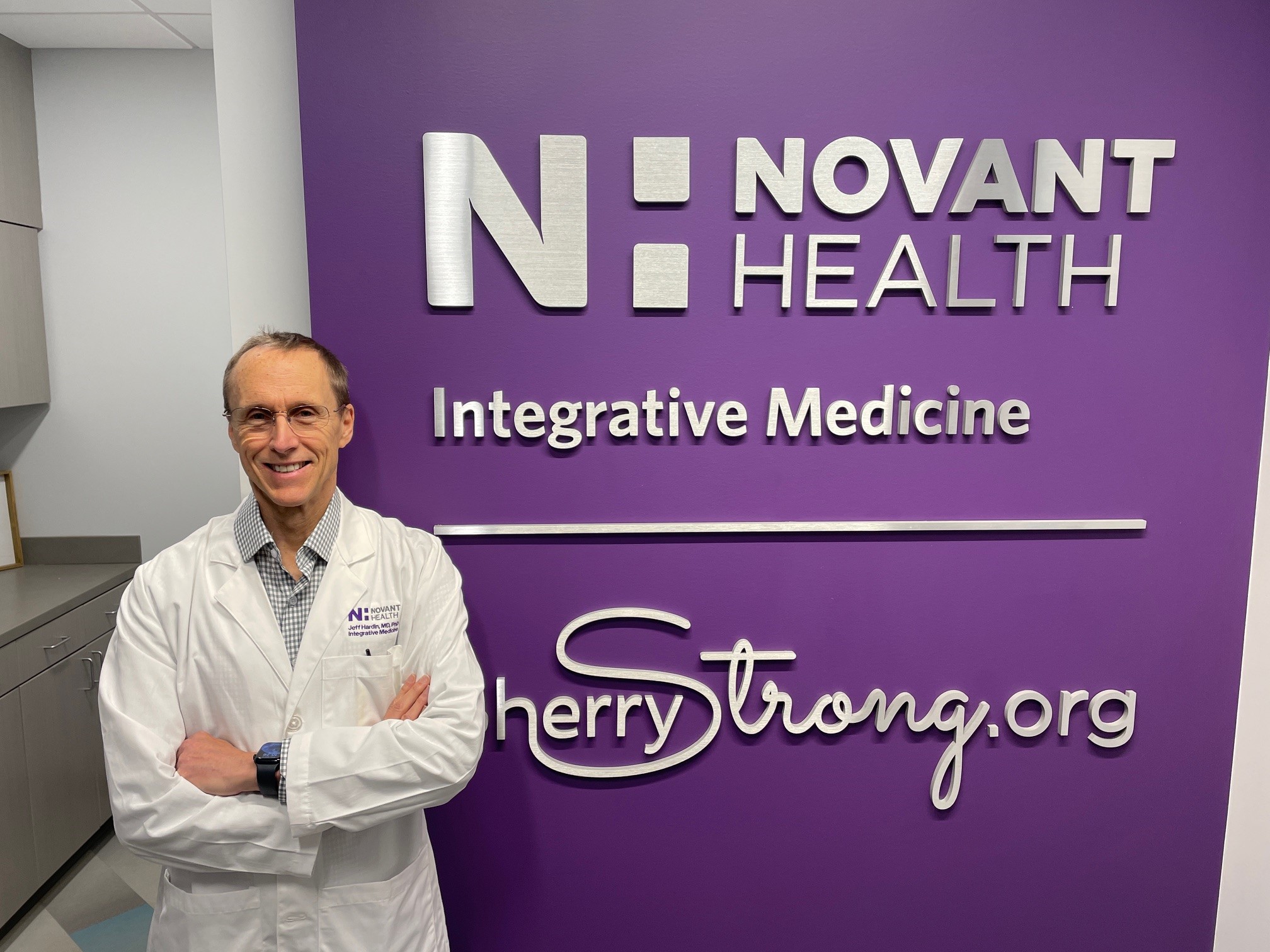
Five healing pillars
In the past, integrative medicine was sometimes mistakenly referred to as “alternative medicine.” That’s incorrect. It’s medicine practiced by licensed physicians who provide complementary care in conjunction with other medical treatments.
Integrative medicine is based on five pillars. Here's how they factor into treatment for chemo brain:
Nutrition: Integrative oncologist Dr. Jeff Hardin recommends a Mediterranean-style diet rich in fruits, veggies, chicken, fish and eggs, with limited amounts of dairy. "The body is under assault both from the cancer and from the treatment, and it takes a lot of energy and a lot of protein to repair it," he said.
Exercise: Working out releases a growth factor called BDNF that is essential for cognition. Both aerobic and strength training are important, even during treatment, with a doctor's OK. Novant Health wellness programs can help.
Sleep: The brain repairs itself while you sleep. To get seven or eight hours a night, practice good sleep hygiene. Aim for a consistent bedtime and stow technology 30 minutes beforehand. Meditation apps and may come in handy. Ask your doctor about supplements such as melatonin.
Stress reduction: With or without cancer, chronic stress can cause cognitive changes. Breathing exercises, meditation and prayer may help you manage it.
Social connection: "It's surprising how many people going through the journey of cancer are socially isolated," Hardin said. It's important to have caring folks around you. Patients encourage one another and share coping strategies in support groups at Novant Health Cancer Institute Kemp Bessant Support Center.





